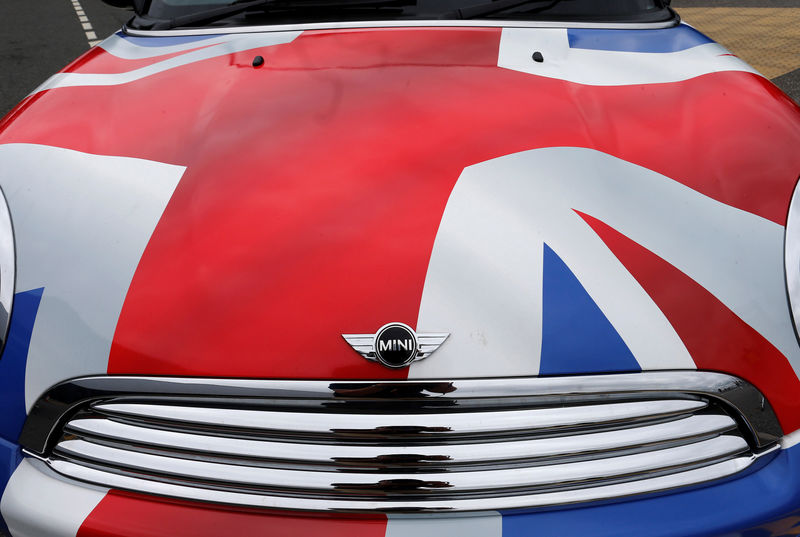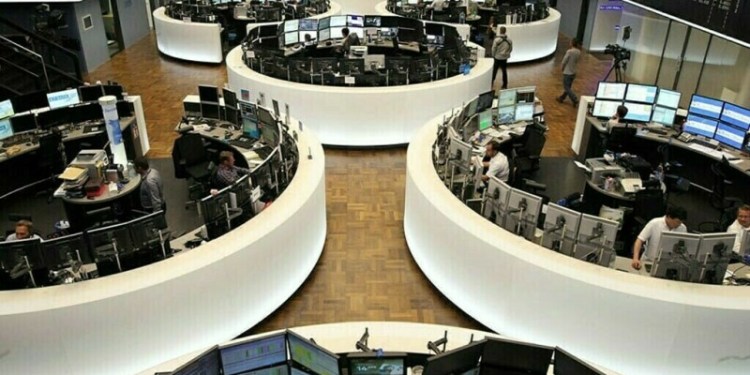 © Reuters. FILE PHOTO: A Mini painted with a Union flag
© Reuters. FILE PHOTO: A Mini painted with a Union flagBRUSSELS/LONDON (Reuters) – London and Brussels should rule out a ‘no deal’ Brexit, which could add at least 5.7 billion euros ($6.65 billion) in car tariffs and snarl up production, Britain’s automotive industry body warned on Wednesday.
Carmakers are worried that port and motorway hold-ups could slow the movement of components and finished models, crippling output and adding costs, if Britain fails to reach agreement with the European Union over its departure from the bloc on March 29.
A delegation from the Society of Motor Manufacturers and Traders (SMMT) is due to meet representatives from EU countries in Brussels on Wednesday to emphasize the importance of securing a deal for the sector.
“Our industry is deeply integrated across both sides of the Channel, so we look to negotiators to recognize the needs of the whole European automotive industry and act swiftly to avoid disruption and damage,” SMMT Chief Executive Mike Hawes said in a statement.
Hawes emphasized how integrated the British auto industry is with the rest of Europe, with 1,100 trucks per day bringing in parts for UK vehicle factories.
“We cannot afford a ‘no deal’ Brexit. That is the worst of the imaginable options for this industry,” he told a briefing in Brussels late on Tuesday
Tariffs of 10 percent under World Trade Organisation rules would add an average of 3,000 euros to the cost of British-built cars sold in the EU if fully passed on to buyers and 1,700 euros to the cost of a European car imported into Britain, the SMMT said.
The difference is due to the higher average value of British-built vehicles.
Hawes also cautioned that the auto sector would not work if there were delays at the border, adding that this would require carmakers to have unfeasibly large warehouses to store components.
Politicians hope to strike a Brexit deal by the end of the year to allow a 21-month transition period until the end of 2020, with little changing until new terms are implemented.
Hawes also said that a free-trade deal alone would not result in frictionless trade, with one possibility being non-tariff barriers. Such requirements might mean exported British cars need to have certain levels of local content.
Carmakers, however, are already taking steps to prepare for any eventuality.
BMW this week said it would move the annual maintenance shutdown period for its British Mini plant to just after Britain is due to leave the EU in case there is no Brexit deal.
Fusion Media or anyone involved with Fusion Media will not accept any liability for loss or damage as a result of reliance on the information including data, quotes, charts and buy/sell signals contained within this website. Please be fully informed regarding the risks and costs associated with trading the financial markets, it is one of the riskiest investment forms possible.
Source: Investing.com




























